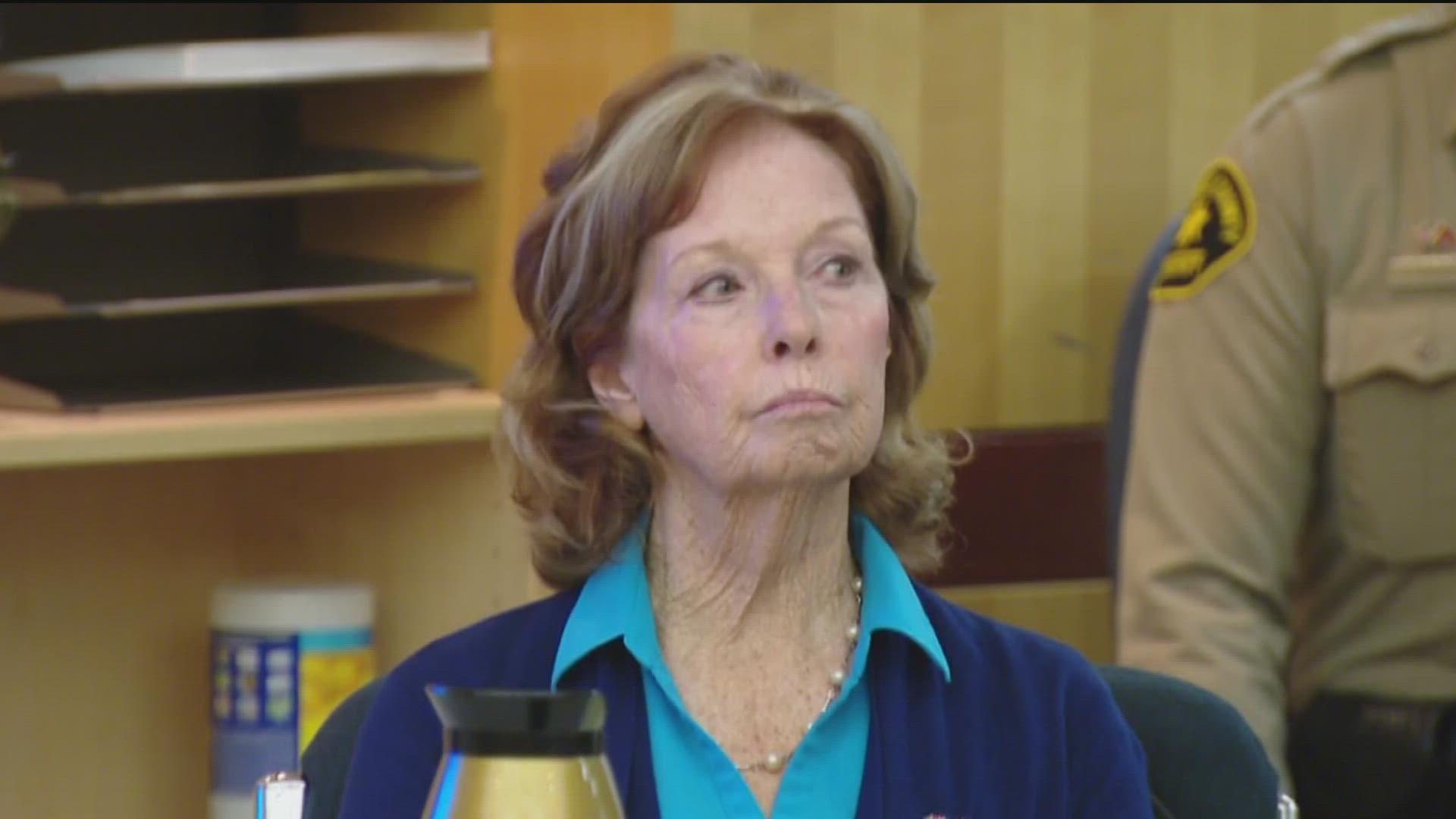SAN DIEGO — A murder charge was dismissed Monday against a woman previously convicted of killing her husband more than two decades ago in Valley Center.
Jane Dorotik was convicted and served part of a 25-years-to-life prison sentence for the death of 55-year-old Robert Dorotik, whose body was found Feb. 13, 2000.
She spoke to CBS 8 outside of the courtroom.
"It just is overwhelming to realize now I can determine my own future," said Dorotik.
"This has been a torturous journey for 22 years and it’s finally over. And that’s a huge relief. I also want to say it’s been a horrendous hurricane for my whole family. I hope now we have an opportunity for some healing and reconciliation," she said.
Prosecutors alleged that Dorotik beat her husband to death in their bedroom in the Valley Center horse ranch they rented, then dumped his body on the side of a road a few miles away.
She was convicted of his murder in 2001 but was released from prison in 2020, with the San Diego County District Attorney's Office conceding to a defense motion to set aside the verdict following the discovery of new DNA evidence.
Later, prosecutors announced they would seek to retry her for the murder, but abandoned that pursuit Monday with a motion to dismiss the case just before her retrial was set to begin.
Dorotik's attorneys from Loyola Law School's Project for the Innocent have long claimed that the prosecution's case relied on faulty forensic evidence that was mishandled and misinterpreted by criminalists, including blood pattern evidence and tire tracks found near the victim's body. They also say DNA from another person was found underneath Robert Dorotik's fingernails and that investigators overlooked witness accounts of Robert Dorotik apparently alive one day after prosecutors alleged he was murdered.
Project for the Innocent Legal Director Paula Mitchell, said "LPI enlisted an army of experts to review the forensic evidence, and their reports show that the criminalists who handled and analyzed the evidence in this case were not competent to do that work. Add to that overzealous prosecutors, intent on getting a conviction, and you end up with a case against Jane Dorotik that was nothing more than smoke and mirrors dressed up for the jury as `scientifically reliable' forensic evidence."
In its motion to dismiss, prosecutors said certain evidence was ruled inadmissible prior to the upcoming trial and without that, the case cannot proceed.
"This is a circumstantial evidence case in which the People's ability to prove guilt beyond a reasonable doubt depends upon the admission of the full range of evidence," the motion states.
In a statement issued following the case's dismissal, the San Diego County District Attorney's Office said, "This case has a long history where a jury convicted the defendant of murdering her husband. The case started over after a judge granted a new trial. After a preliminary hearing, a judge found probable cause that the defendant murdered her husband, Robert Dorotik, and the case was set for jury trial. The District Attorney's Office is ethically bound to only proceed with trial if we believe the admissible evidence is sufficient to convince all 12 jurors that the defendant is guilty beyond a reasonable doubt. After litigating the pre-trial motions in a fair and complete hearing and reviewing the court's subsequent rulings on admissible evidence and in particular the elimination of key tire track evidence, we have concluded we can no longer ethically proceed with the prosecution of this defendant because the evidence is now insufficient to prove guilt beyond a reasonable doubt. In every criminal case we file, our office remains committed to pursuing fair and equal prosecution and delivering justice for crime victims."
One of Dorotik's attorneys, Mike Cavalluzzi, said, "Ms. Dorotik has demonstrated remarkable courage and resilience in standing up to the system that has taken so much from her, and in that time, she has committed herself to helping others get justice in the criminal system. We are so grateful that Ms. Dorotik can finally put this behind her so she can now fully devote herself to her work of impacting criminal justice reform."
Mitchell said this case is proof changes are needed within the criminal justice system.
"We need to accept that our system is not perfect it's far from perfect and accept these mistakes happen a lot more often than we think they do," she said.
Getting compensation for a wrongful conviction involves a lengthy process with the California Victim Compensation Board, Mitchell said.
"You have to start all over again trying to convince this new body, the board, that you are actually innocent and were wrongfully convicted and are entitled to this state compensation," she said. "That process takes many months or even years."
Nearly 700 people have been proven wrongfully convicted in California over the past three decades, according to the Loyola Project for the Innocent.
Watch Related: Jane Dorotik trial | Murder charge dismissed, 'evidence is now insufficient'

